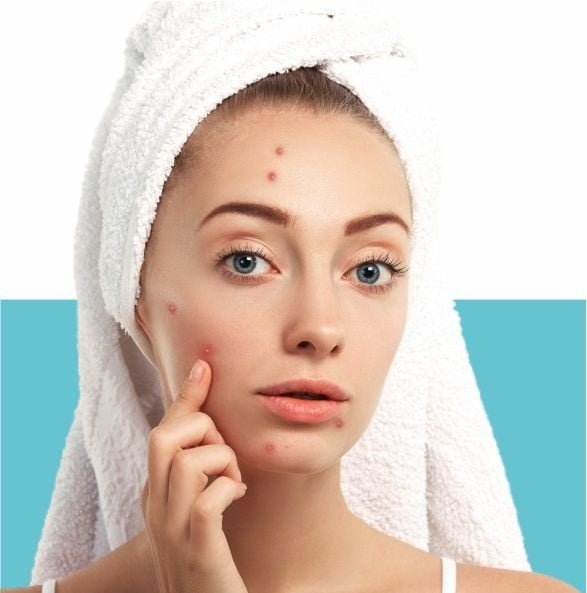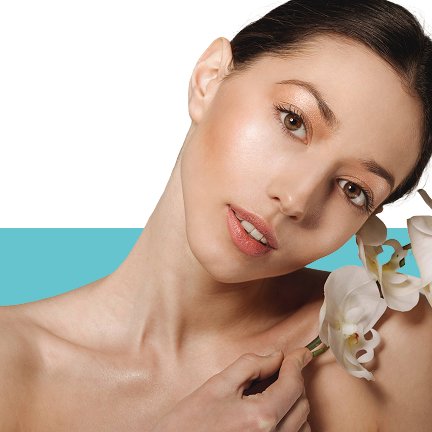
- In today’s high-speed world, the demands of modern living often create a perfect storm for skin issues, particularly stress acne.
- Stress acne, a type of acne aggravated by stress and lifestyle factors, has become a common concern for many people.
- This article explores how various elements of modern life including insufficient sleep, unhealthy eating habits, lack of physical activity, excessive screen time, persistent anxiety, and deficiencies in sunlight and fresh air contribute to the development and worsening of acne.
- Understanding these connections can help individuals make informed changes to improve their skin health and overall well-being.
1. The Modern Lifestyle and Its Effect on Skin Health

Modern life is characterized by its relentless pace and convenience, which, while beneficial in many ways, often negatively impacts our skin. Acne, particularly stress-related acne, is increasingly prevalent as individuals juggle demanding schedules, poor diet choices, and high-stress environments. The interplay between these factors creates a cycle that exacerbates skin issues.
2. Sleep Deprivation and Its Influence on Acne
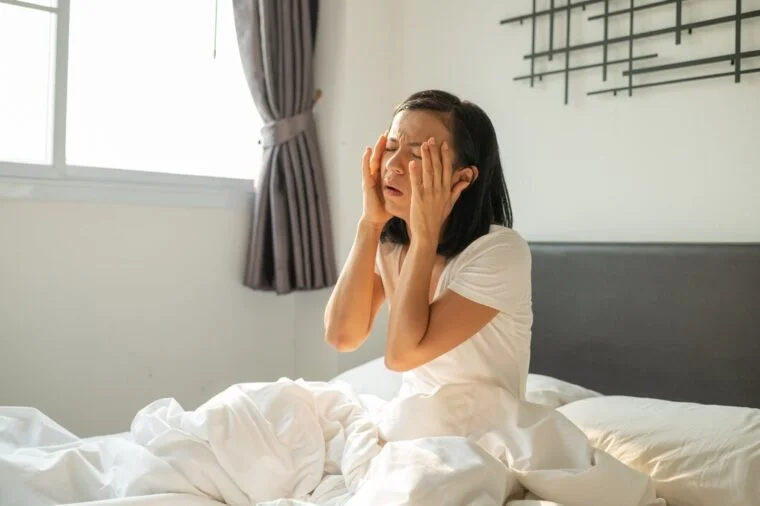
A fundamental component of a healthy lifestyle is adequate sleep. However, the modern lifestyle frequently disrupts our sleep patterns, leading to chronic sleep deprivation. Sleep is essential for various physiological processes, including skin repair and immune function.
Effects of Poor Sleep on Skin Health:
- Increased Cortisol Levels: Lack of sleep elevates cortisol, a stress hormone that can stimulate the sebaceous glands in the skin to produce excess oil. Excess oil can block pores, which may result in acne.
- Impaired Skin Repair: During sleep, the body undergoes repair processes, including skin regeneration. Insufficient rest impairs these processes, delaying healing and worsening acne.
- Diminished Immune Response: Adequate sleep is crucial for a robust immune system. Sleep deprivation weakens immune responses, making the skin more susceptible to infections and inflammation.
To counteract these effects, it’s important to prioritize sleep by establishing a regular sleep schedule, creating a restful environment, and practicing good sleep hygiene.
3. The Impact of Junk Food on Acne

Diet plays a crucial role in skin health, and the modern diet—often laden with processed and junk foods can have detrimental effects on the skin. Foods high in sugar, refined carbohydrates, and unhealthy fats are particularly problematic.
- How Junk Food Contributes to Acne:
- Increased Insulin Levels: Foods with a high glycemic index, such as sugary snacks and beverages, can cause spikes in insulin levels. Elevated insulin can increase sebum production, leading to acne.
- Inflammatory Responses: Processed foods often contain trans fats and artificial additives that can trigger inflammation in the body. This inflammation can exacerbate acne symptoms.
- Nutrient Deficiency: A diet lacking in essential nutrients—such as vitamins A, C, and E, and minerals like zinc—can impair skin health and its ability to heal and resist acne.
Adopting a diet rich in whole foods, including fruits, vegetables, lean proteins, and whole grains, can help improve skin health and reduce the incidence of acne.
4. Sedentary Lifestyle and Its Effects on Acne

Physical activity is vital for overall health, including skin health. A sedentary lifestyle, characterized by long periods of inactivity, can negatively affect the skin in several ways.
- Effects of Lack of Physical Activity:
- Reduced Blood Circulation: Exercise enhances blood flow, delivering essential nutrients to the skin and aiding in the removal of toxins. Lack of exercise can result in poor circulation and dull, congested skin.
- Increased Stress Levels: Regular physical activity helps regulate stress hormones. Without adequate exercise, stress levels can rise, potentially leading to increased oil production and acne.
- Accumulation of Toxins: Exercise promotes detoxification through sweating, which helps clear out impurities from the skin. A lack of physical activity may result in the accumulation of toxins and clogged pores.
Incorporating regular exercise into your routine whether it’s through walking, running, or engaging in recreational activities can improve circulation, reduce stress, and support overall skin health.
5. The Consequences of Blue Light Exposure

In the digital age, blue light exposure from screens is a prevalent issue. Blue light, emitted by smartphones, computers, and other digital devices, can impact skin health in several ways.
- Impact of Blue Light on Skin Health:
- Disruption of Circadian Rhythms: Excessive blue light exposure, particularly before bedtime, can interfere with circadian rhythms and sleep quality. Poor sleep can exacerbate acne by disrupting skin repair processes.
- Increased Oxidative Stress: Blue light exposure can generate free radicals, leading to oxidative stress. This stress can damage skin cells, contribute to premature aging, and worsen acne inflammation.
To mitigate blue light effects, consider using blue light filters on screens, taking regular breaks from digital devices, and practicing good sleep hygiene.
6. The Importance of Sunlight and Fresh Air

Sunlight and fresh air are often overlooked but essential components of a healthy lifestyle. Modern lifestyles, especially those involving long hours indoors, can lead to deficiencies in these natural elements, which can impact skin health.
- Effects of Lack of Sunlight:
- Vitamin D Deficiency: Sunlight is a primary source of Vitamin D, which plays a crucial role in maintaining healthy skin. A deficiency in Vitamin D can impair skin healing and immune function, potentially exacerbating acne.
- Mood and Stress Levels: Exposure to natural light helps regulate mood and circadian rhythms. Lack of sunlight can lead to mood disorders such as Seasonal Affective Disorder (SAD), which can increase stress and, consequently, acne.
- Effects of Lack of Fresh Air:
- Poor Skin Oxygenation: Fresh air improves skin oxygenation and helps in the removal of toxins from the skin. Indoor environments with poor air quality can lead to a buildup of toxins and exacerbate acne.
- Reduced Detoxification: Fresh air promotes better respiratory function, which is linked to the overall detoxification of the body, including the skin. Lack of fresh air can impede this process and contribute to skin issues.
To improve skin health, aim to spend time outdoors, expose yourself to natural light, and ensure adequate ventilation in indoor spaces. Simple practices like taking regular walks, spending time in parks, and ensuring your living environment is well-ventilated can significantly benefit your skin.
7. Anxiety and Stress: The Role in Acne Flare-Ups

Anxiety and stress have a profound effect on skin health. The connection between mental health and acne is well-documented, and high stress levels can exacerbate or even trigger acne outbreaks.
- How Anxiety Contributes to Acne:
- Elevated Cortisol Levels: Anxiety increases cortisol production, which can boost sebum production and lead to acne. Excess oil can clog pores and trigger breakouts.
- Inflammatory Response: Chronic stress and anxiety can lead to systemic inflammation, worsening existing acne and making the skin more prone to new breakouts.
- Neglect of Skincare Routine: Stress can lead to neglect of self-care routines, including skincare. Poor skincare habits can contribute to acne development and flare-ups.
Managing stress through relaxation techniques, mindfulness practices, and professional support can positively impact both mental health and skin health.
8. Practical Strategies for Healthy Skin
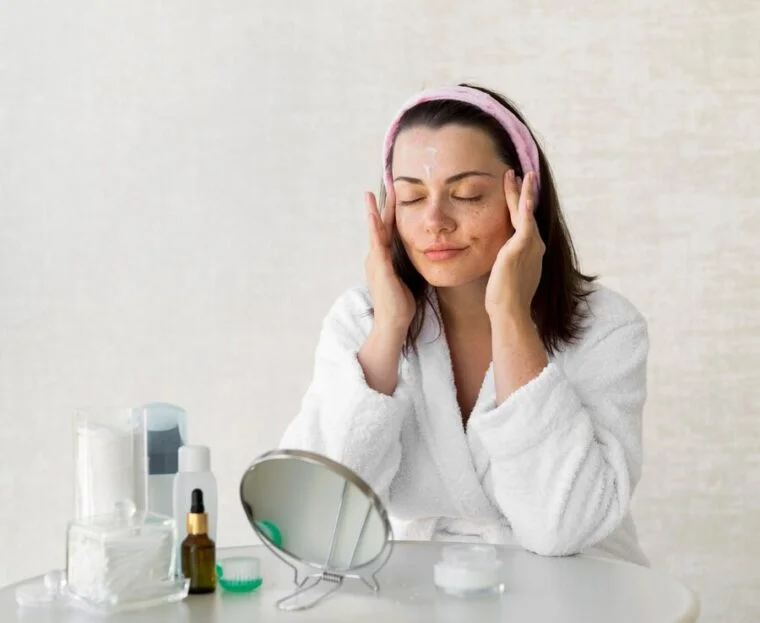
Addressing stress acne requires a multifaceted approach. Here are some practical strategies to improve skin health and manage acne:
- Establish a Consistent Sleep Routine:
- Aim for 7-9 hours of quality sleep each night.
- Create a calming bedtime routine and stick to a regular sleep schedule.
- Adopt a Balanced Diet:
- Include a diverse range of whole foods in your diet, such as fruits, vegetables, lean proteins, and whole grains. Limit consumption of high-glycemic and processed foods to reduce inflammation and oil production.
- Engage in Regular Physical Activity:
- Strive to engage in at least 150 minutes of moderate exercise each week.
- Choose activities you enjoy to maintain consistency and improve circulation.
- Manage Screen Time:
- Use blue light filters on devices and take regular breaks from screens.
- Reduce screen time before bed to enhance the quality of your sleep.
- Increase Sunlight Exposure and Fresh Air:
- Spend time outdoors to benefit from natural light and fresh air.
- Ensure your living environment is well-ventilated and try to get some sunlight exposure daily.
- Practice Stress Management:
- Utilize techniques such as deep breathing, meditation, or yoga to manage stress.
- Seek professional help if needed to address chronic anxiety and stress.
- Maintain a Skincare Routine:
- Cleanse your skin daily to remove excess oil and impurities.
- Use non-comedogenic products and consult with a dermatologist for personalized skincare advice.
PRP (Platelet-Rich Plasma) therapy for the skin operates on the principle of harnessing the regenerative potential of platelets to rejuvenate and enhance skin health. It commences with a small blood sample taken from the patient, which is then processed to concentrate the platelets and growth factors, creating PRP. These growth factors play a crucial role in tissue repair and regeneration. When applied to the skin, either through micro-needling or direct injection, PRP stimulates collagen and elastin production. PRP Clinic in GK2.
Peels are treatments that involve application of certain active ingredients to exfoliate the skin.
Peels are used very commonly to treat the following skin concerns:
- acne
- enlarged pores
- fine lines
- scarring
- redness
- rosacea
- hyperpigmentation
- undereye dark circles
Micro-needling, also known as Collagen Induction Therapy, stimulates collagen production by puncturing the skin with tiny needles through MNRF treatment.
MNRF stands for Micro-Needling Radio Frequency, a modern skin treatment that combines micro-needling and radio-frequency technologies for skin rejuvenation and improvement.
Mild chemical peels can brighten the skin around the eyes, reducing dark circles and fine lines. They exfoliate the skin, encouraging new skin cells to form and promoting collagen production.
Microneedling is a treatment that uses tiny needles to create micro-injuries in the skin, promoting collagen production and helping reduce fine lines, wrinkles, and dark circles.
Our Signature service is ideal to say good bye to stubborn acne in just one treatment. It works for all skin types. The synergy of effective molecules in KLARITY ANTI-ACNE PEEL, not only reduce stubborn acne but also reduce appearance of melasma, freckles and mild cases of rosacea. It also helps in reducing pore size and smoothens out rough texture of the skin.
It is a device that delivers laser light that is divided in many microscopic treatment zones and hence it targets only fractions of the skin at a time. This leads to alternating columns of treated and untreated skin in the targeted area, thus making it a very safe and efficacious procedure.
The Dermaroller is a hand held device that works by causing “mini-trauma” to the skin and thereby activating the healing process of the skin. As a result of the trauma, circulation to the treated area increases and large number of growth factors are released, thus promoting collagen synthesis. After a few treatments, scars start to contract and skin appears smoother. Open pores start to tighten and the skin looks younger. There may be mild redness and swelling of the treated area for a short period of time after the service.
A Dermapen is a skin microneedling device that works by stimulating the skin cells to produce new collagen. Also the micro-channels created by the microneedles help in better absorption of the nutrients and other active ingredients that can be applied to the skin after the procedure.
Acne scars can be treated and improved instantly by injecting dermal fillers into the scars. This is ideal for those looking for a quick fix for the scars. Dermal Fillers improve the appearance of the acne scars by lifting up the indentation. Their effect is however not permanent.
The results can last from between a few months to a year depending on the type of filler used.
A carbon peel is a revolutionary laser treatment using the Q switched Nd-Yag laser that is highly beneficial for people with oily skin, blackheads, enlarged pores, dull skin and acne. It is also an excellent way to exfoliate and refresh your skin, leaving skin feeling softer, smoother and firmer.
Apart from the face, acne and post acne scars can affect the back, chest, shoulders and sometimes even the buttocks. It’s a general tendency to ignore acne on the body parts as it is not as visible as on the face.
Body acne can, at times, be much more severe than face acne. Also the scarring is much deeper and may need multiple treatments before you can see a good difference. Hence, it is important to treat body acne sooner to reduce chances of severe scarring
9. Summary

Modern lifestyles, with their inherent challenges and conveniences, significantly impact skin health, particularly in the form of stress acne. Poor sleep, unhealthy eating habits, lack of physical activity, excessive screen time, high levels of anxiety, and deficiencies in sunlight and fresh air all play a role in the development and exacerbation of acne. By adopting healthier habits and making informed lifestyle choices, individuals can improve their skin health and reduce the prevalence of stress acne.
10. Dermatologist Consultation
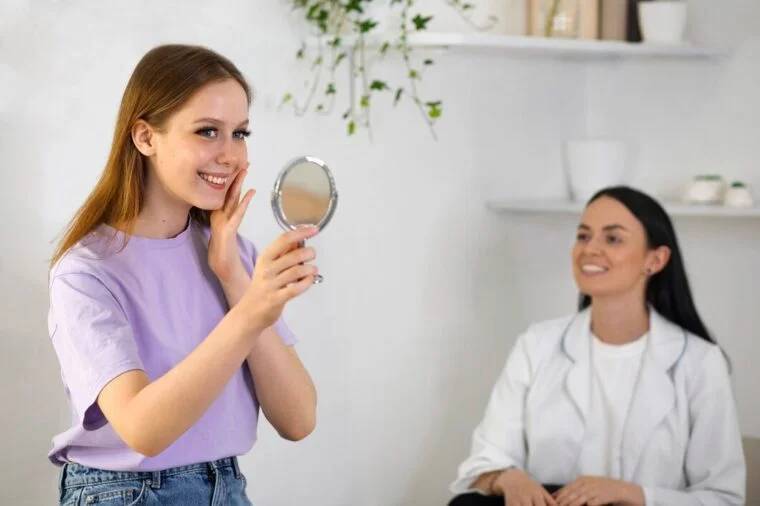
- Combining disciplined dietary and lifestyle changes with dermatologist-recommended treatments significantly accelerates acne healing.
- Adhering to a balanced diet rich in whole foods, maintaining a consistent sleep schedule, engaging in regular physical activity, managing stress, and reducing blue light exposure, alongside utilizing professional dermatological services such as topical treatments, chemical peels, and laser therapies, fosters a comprehensive approach to acne management.
- This integrative strategy not only enhances the skin’s natural healing processes but also addresses the root causes of acne, promoting more effective and scientifically grounded recovery.
